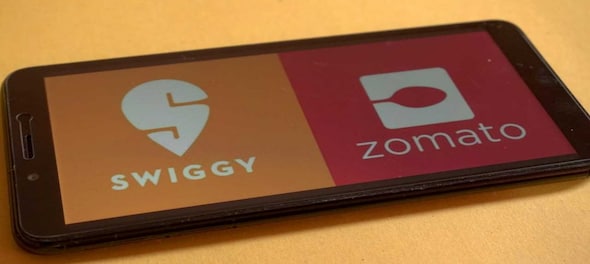
Two months after announcing that it was launching grocery delivery for the second time, Zomato has shelved the plans and will stop the service from Friday, September 17. Zomato had briefly run grocery services last year as well, at the beginning of the COVID-19 pandemic, when food deliveries had fallen.
The company has been operating the 45-minute grocery delivery business on a marketplace model, letting customers order from neighbourhood stores.
But in a letter to grocery partners recently, Zomato acknowledged poor customer experience and "gaps" in the marketplace model, stating that "store catalogues are very dynamic, and inventory levels change frequently."
The marketplace model depends on prompt response from partners such as kiranas, supermarkets and other grocery partners for the order fulfilment.
In fact, rival Swiggy had also launched a marketplace-based grocery delivery pilot in some cities such as Bengaluru two years ago, under the 'Swiggy Stores' vertical. However, they too had to pull the plug on the service due to below-par customer experience.
"The marketplace model relies on partners such as kiranas and supermarkets to continuously update their inventory database, to ensure that the products being ordered by the customers are available at the time. Swiggy had found that it was lacking in several partners and hence decided to stop the pilot," a person aware of the developments told CNBC-TV18.
However, just a year later, in 2020, Swiggy launched Instamart on a new model - dark stores.
Dark stores are local fulfilment centres distributed densely in cities for fast delivery. These could either be warehouses or even local retail stores where FMCG products and fresh produce are stocked.
Grocery delivery is a tricky, low-margin business and the model that seems to be working out for several companies is the dark store format, which is being followed by the likes of Swiggy for its Instamart business, Dunzo, and Grofers.
Swiggy, as per sources, has expanded its Instamart service to over 10 cities now, including the leading metros, where it now offers grocery delivery between 15-30 minutes.
"Swiggy learnt from its first pilot on what not to do in grocery delivery and launched Instamart last year on the dark store model which offers more control and better customer experience," the person cited above added.
Swiggy did not offer a comment.
For food delivery companies, the presence of a large number of feet on street also works well for grocery. As per industry members, the timings of people ordering groceries and ordering food do not usually coincide, thus letting these companies utilise their manpower effectively, while also giving more earnings to the delivery partners.
Competition
Grofers has also been aggressively marketing its 10-minute grocery delivery service, and founder Alibnder Dhindsa last month stated that they have 60+ stores in Delhi and 20+ stores in Gurgaon to facilitate the express deliveries.
Zomato is now betting on Grofers, in which it made a $100 million investment earlier this year for a 10 percent stake, and sources say there could be a move to make a significant acquisition in the future.
"Grofers has found high quality product market fit in 10-minute grocery and we believe our investment in the company will generate better outcomes for our shareholders than our in-house grocery effort," the company said in a statement.
Hyperlocal delivery platform Dunzo also entered into online grocery space, with its offering Dunzo Daily in Bengaluru, through which it will deliver essentials in 19 minutes.
Dunzo is using a network of mini-warehouses across neighbourhoods to offer the quick deliveries.
Other models
Another model for grocery delivery is where a few players have tied up with large retailers to fulfil orders for them.
Bengaluru-based Goodbox says it has been working with several large independent grocers in Bengaluru for 2-hour deliveries, and also has 15 stores currently on a 30-minute delivery pilot.
"We are working with supermarkets only and not kiranas since the former are better inventorised and also get higher average order value of around Rs 1000 compared to Rs 150 that kiranas get," said Abey Zachariah, cofounder and CEO of Goodbox.
"Retailers understand customer choices well, and we help with the technology to connect customers," he said.
"We have been able to break-even across most stores," said Zachariah.
According to Redseer, quick commerce is estimated to touch $0.3 billion in CY2021 and is expected to grow 10-15x in the next 5 years, to become $5 billion by 2025.
Check out our in-depth Market Coverage, Business News & get real-time Stock Market Updates on CNBC-TV18. Also, Watch our channels CNBC-TV18, CNBC Awaaz and CNBC Bajar Live on-the-go!


Pannian Ravindran: Thiruvananthapuram's Left candidate who's lived in party office for 40 years
Apr 24, 2024 11:47 AM
Lok Sabha Election 2024 Live: PM panicked after seeing our revolutionary manifesto, says Rahul Gandhi
Apr 24, 2024 9:58 AM

